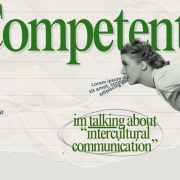Love outside romance
When we think of Valentine’s Day, our brains immediately bombard us with rosy images of red roses and chocolates, candlelit dinners and pink hearts. This is what most of us associate with February 14th– the cliché notions of romance and romantic love. While sweet, in their grandeur, these idealised notions of romantic relationships overlook other manifestations of love that are taken for granted, particularly platonic love. Despite being the foundation of our friendships and therefore the most common and widespread source of affection in our lives, platonic love has been sidelined in our cultural narrative surrounding Valentine’s Day, which places romanticism at its centre.
Characterised as a celebration for romantic couples, those who find themselves without a date or partner on Valentine’s Day are automatically assumed to be “lonely” and consequently pitied for it. Such a mindset encapsulates the significance with which society associates romantic love. In movies and fairy tales and childhood stories, we are taught that romantic love is the aim to strive for, the end goal. It frames our lives as a mere journey to achieving this– perpetually lonely until we find “the one”, the love of our lives.
Frankly, I find such a narrative redundant. The absence of a partner does not have to equate to loneliness, and a romantic relationship does not have to be the be-all solution to loneliness. We can find love, and so much of it, from our friendships. One genuine, loving friendship can be just as fulfilling as a relationship. In fact, our formative years are built on the foundation of friendships. From this perspective, platonic love shapes us, our support systems, and the way we learn to express affection towards others. It is so completely indispensable to our wellbeing that it seems ironic that it is not even a topic of conversation on a day such as Valentine’s Day– a day reserved for love.
This emphasis on romantic love and the association of singleness with loneliness fosters feelings of anxiety around many surrounding the holiday. There are those without partners who feel like they are “falling behind” – an inevitable outcome when you are taught that romantic love is the finish line you are meant to reach at some point. There are others who feel like they are inherently incomplete or less happy without a partner, born out of the idea that true happiness cannot be achieved without romantic love. Such damaging thoughts are products of this one-sided view on love, stirring negative feelings that are ultimately unnecessary. In truth, I believe they could be avoided entirely if we were to give more light and importance to our platonic relationships, which are often more stable and equally loving than any romantic partner.
Ultimately, love is richer than that which is purely romantic. Fulfilment and happiness exists outside romantic relationships and can even be achieved without them. The love, intimacy and trust found in our platonic friendships does not have to be insufficient. It can be enough. It can be everything.
Writer: Valentina Someso
Visuals: Diana Chaika
Editor: Csenge Nagy-György


